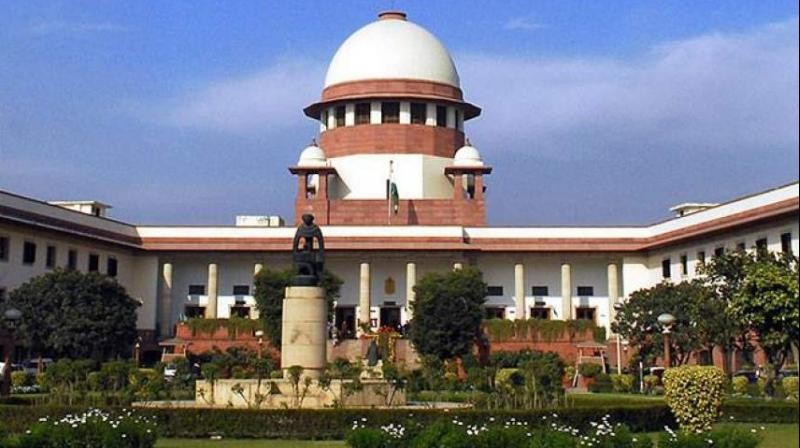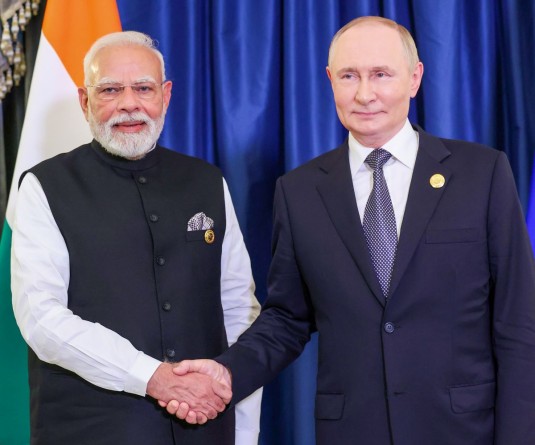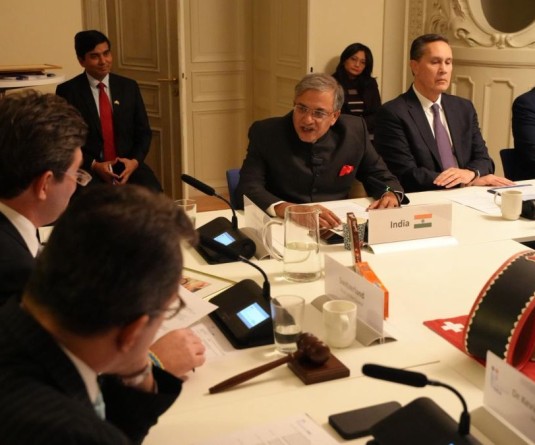Supreme Court of India. (PTI File Photo)

New Delhi, May 19 (PTI): In a significant verdict, the Supreme Court Thursday ruled that the recommendations of Goods and Services Tax (GST) Council are not binding on the Union and the states and only have a persuasive value.
The top court said that Parliament and state legislatures possess simultaneous power to legislate on GST and the recommendations of the council are the product of a collaborative dialogue involving the Union and states.
It said that the GST Council is not merely a constitutional body restricted to the indirect tax system in India but is also an important focal point to foster federalism and democracy.
A bench of justices D Y Chandrachud, Surya Kant and Vikram Nath rejected the Centre's contention that the recommendations of the GST Council are binding on the legislature and the executive and said since the Constitution does not envisage a repugnancy provision to resolve inconsistencies between the central and state laws on GST, the GST Council must ideally function, as provided by Article 279A(6), in a "harmonised manner to reach a workable fiscal model through cooperation and collaboration".
It said that the recommendations of the GST Council are not binding on the Union and States for the reasons that the "deletion of Article 279B and the inclusion of Article 279(1) by the Constitution Amendment Act 2016 indicates that the Parliament intended for the recommendations of the GST Council to only have a persuasive value, particularly when interpreted along with the objective of the GST regime to foster cooperative federalism and harmony between the constituent units".
The bench said that one of the important features of Indian federalism is 'fiscal federalism' and a reading of the Statement of Objects and Reasons of the 2014 Amendment Bill, the parliamentary reports and speeches indicate that articles 246A and 279A of the Constitution were introduced with the objective of enhancing cooperative federalism and harmony between the states and the Centre.
The top court ruling came on a batch of appeals including that of Centre as it upheld a Gujarat High Court verdict to quash the levy of Integrated GST (IGST) on the importers on ocean freight under reverse charge.
The high court had held that no tax can be levied under the IGST on the ocean freight for the services provided by a person located in non-taxable territory by way of transportation of goods by a vessel from a place outside India up to the customs station in India.
It had quashed the 2017 notification of the Centre by which IGST of five per cent would be levied on the services of transport of goods in a vessel.
The bench in its 153-page verdict penned down by Justice Chandrachud said that the Centre has a one-third vote share in the GST Council and this coupled with the absence of the repugnancy provision in Article 246A indicates that "recommendations of the GST Council cannot be binding".
"Therefore, the argument that if the recommendations of the GST Council are not binding, then the entire structure of GST would crumble does not hold water. Such a reading of the provisions of the Constitution diminishes the role of the GST Council as a constitutional body formed to arrive at decisions by collaboration and contestation of ideas," it said.
It said that neither does Article 279A begin with a non-obstante clause nor does Article 246A state that it is subject to the provisions of Article 279A.
"The Parliament and the state legislatures possess simultaneous power to legislate on GST. Article 246A does not envisage a repugnancy provision to resolve the inconsistencies between the central and the state laws on GST. The 'recommendations' of the GST Council are the product of a collaborative dialogue involving the Union and states. They are recommendatory in nature," it said.
The top court further said to regard recommendations as binding edicts would disrupt fiscal federalism, where both the Union and the States are conferred equal power to legislate on GST.
"It is not imperative that one of the federal units must always possess a higher share in the power for the federal units to make decisions. Indian federalism is a dialogue between cooperative and uncooperative federalism where the federal units are at liberty to use different means of persuasion ranging from collaboration to contestation," it said.
It said that the government while exercising its rule-making power under the provisions of the CGST Act and IGST Act is bound by the recommendations of the GST Council.
"However, that does not mean that all the recommendations of the GST Council made by virtue of the power Article 279A (4) are binding on the legislature's power to enact primary legislations, it said.
The bench held that the "impugned levy imposed on the 'service' aspect of the transaction is in violation of the principle of 'composite supply' enshrined under Section 2(30) read with Section 8 of the CGST Act".
While dismissing the appeals of Centre and others, it said, since the Indian importer is liable to pay IGST on the 'composite supply', comprising of supply of goods and supply of services of transportation, insurance, etc. in a CIF contract, a separate levy on the Indian importer for the 'supply of services' by the shipping line would be in violation of Section 8 of the CGST Act.
Disclaimer: This story is auto-generated from news agency feeds and has not been edited by The Morung Express.
Source: PTI






